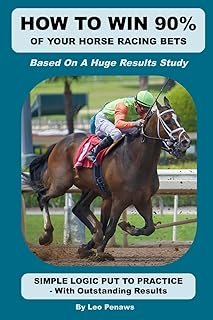Proposed government changes to gambling taxes have sparked concern in the horse racing industry, with Plumpton Racecourse’s director, Thomas Savill, expressing that the potential tax hike on online horse racing bets could be detrimental to the sport. The plan to increase the levy from 15% to 21% in line with other forms of online gambling has raised alarms within the British Horseracing Authority (BHA), estimating a significant financial impact and potential job losses.
While the Treasury has refuted claims of an imminent tax increase, Savill emphasized the challenges faced by the struggling industry. He highlighted the ripple effects of reduced investment leading to fewer owners and horses, ultimately impacting the competitiveness of horse racing. Savill suggested exploring alternative revenue sources, such as online casinos, to alleviate the financial strain on the sport.
Amidst this uncertainty, the BHA organized a protest involving prominent figures in horse racing to voice their opposition to the proposed tax hike. The demonstration, held concurrently with a horse-racing strike, aimed to draw attention to the potential repercussions on betting odds, prize money, and overall industry stability. Participants rallied under the banner “Axe The Racing Tax” in a bid to safeguard the sector’s financial viability.
Exchequer Secretary to the Treasury, Dan Tomlinson, emphasized the government’s commitment to maintaining the current tax exemption for on-site bets, underscoring that any changes would primarily impact bookmakers. Tomlinson reiterated the government’s stance on supporting horseracing through existing tax breaks, emphasizing the cultural significance of the sport and the ongoing dialogue with industry stakeholders to navigate potential challenges.
Despite the reassurances from the Treasury, the specter of a tax increase continues to loom over the horse racing community, prompting stakeholders to remain vigilant and engaged in discussions with policymakers. The evolving landscape of gambling regulations underscores the need for a balanced approach that sustains the financial health of the industry while ensuring a level playing field for all stakeholders.
As the debate around gambling taxes unfolds, industry experts stress the importance of collaborative efforts to safeguard the future of horse racing. The intersection of regulatory changes, financial implications, and cultural significance underscores the complexity of balancing economic considerations with the preservation of a cherished sporting tradition.
While the outcome of the proposed tax changes remains uncertain, the horse racing community remains resilient, united in its commitment to navigating challenges and advocating for a sustainable future. The ongoing dialogue between industry representatives and policymakers reflects a shared determination to preserve the vibrancy and competitiveness of horse racing in the face of evolving regulatory landscapes.
📰 Related Articles
- Senate Faces High-Stakes Battle Over Tax and Spending Bill
- Queensland’s The Q Parklands Faces Racing Suspension Over Safety
- Horse Racing Reform: Hisa’s Impact on US Industry Integrity
- Harness Racing Faces Prizemoney Concerns Amid Industry Evolution
- Greyhound Racing NSW Cancels Coonamble Carnival, Sparks Industry Concern






